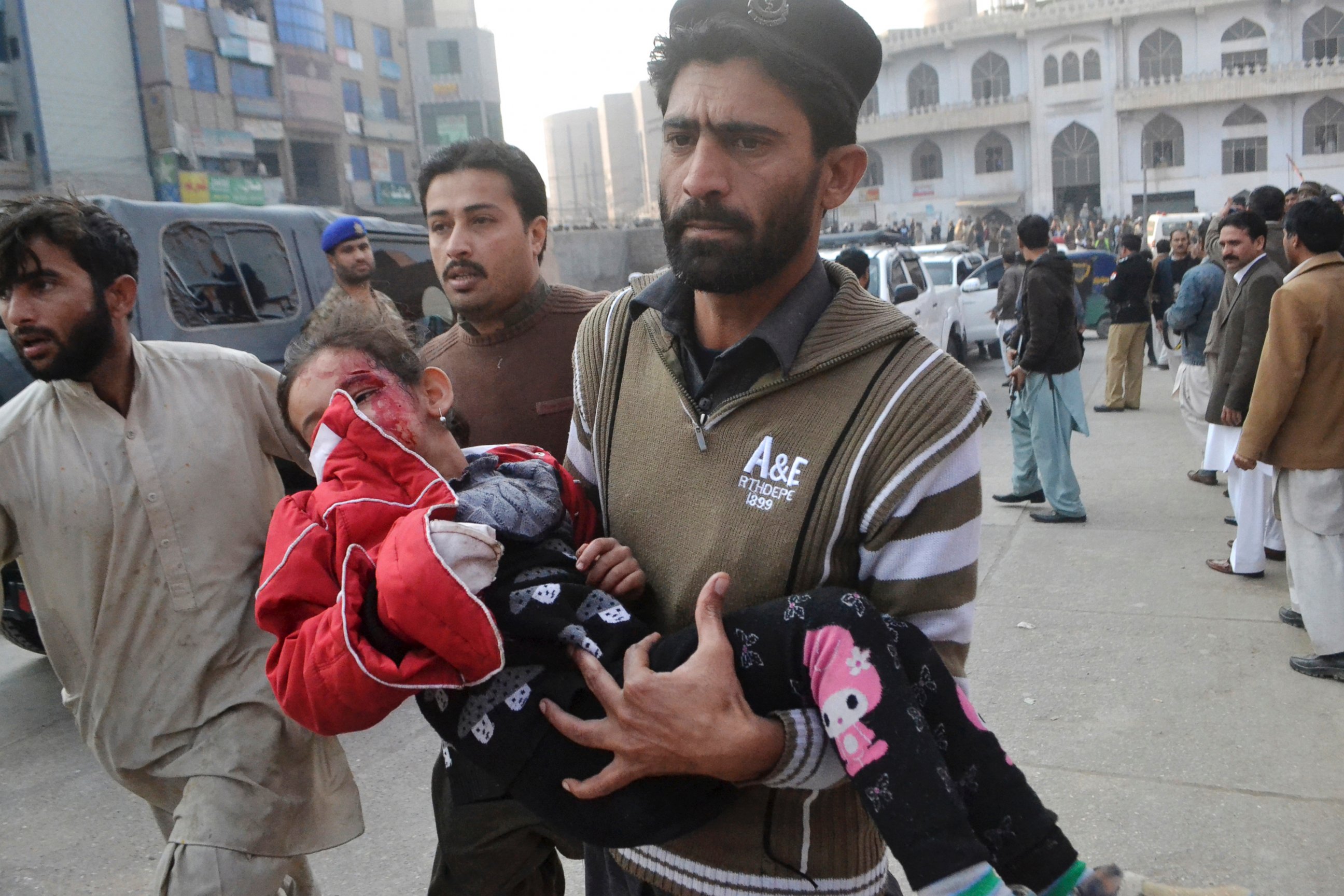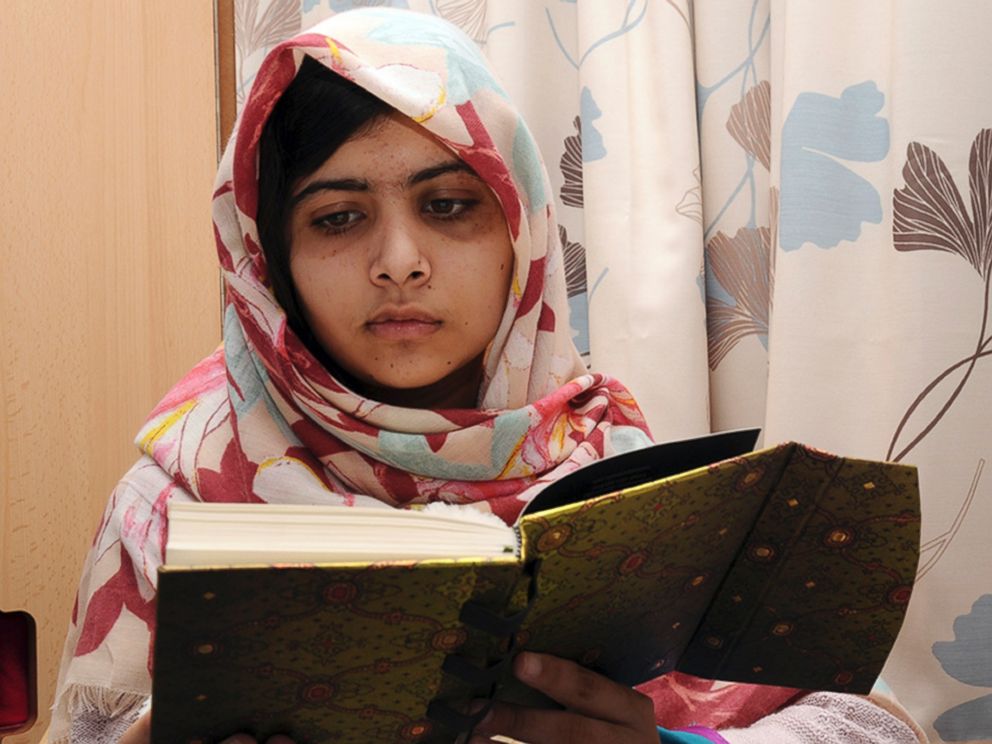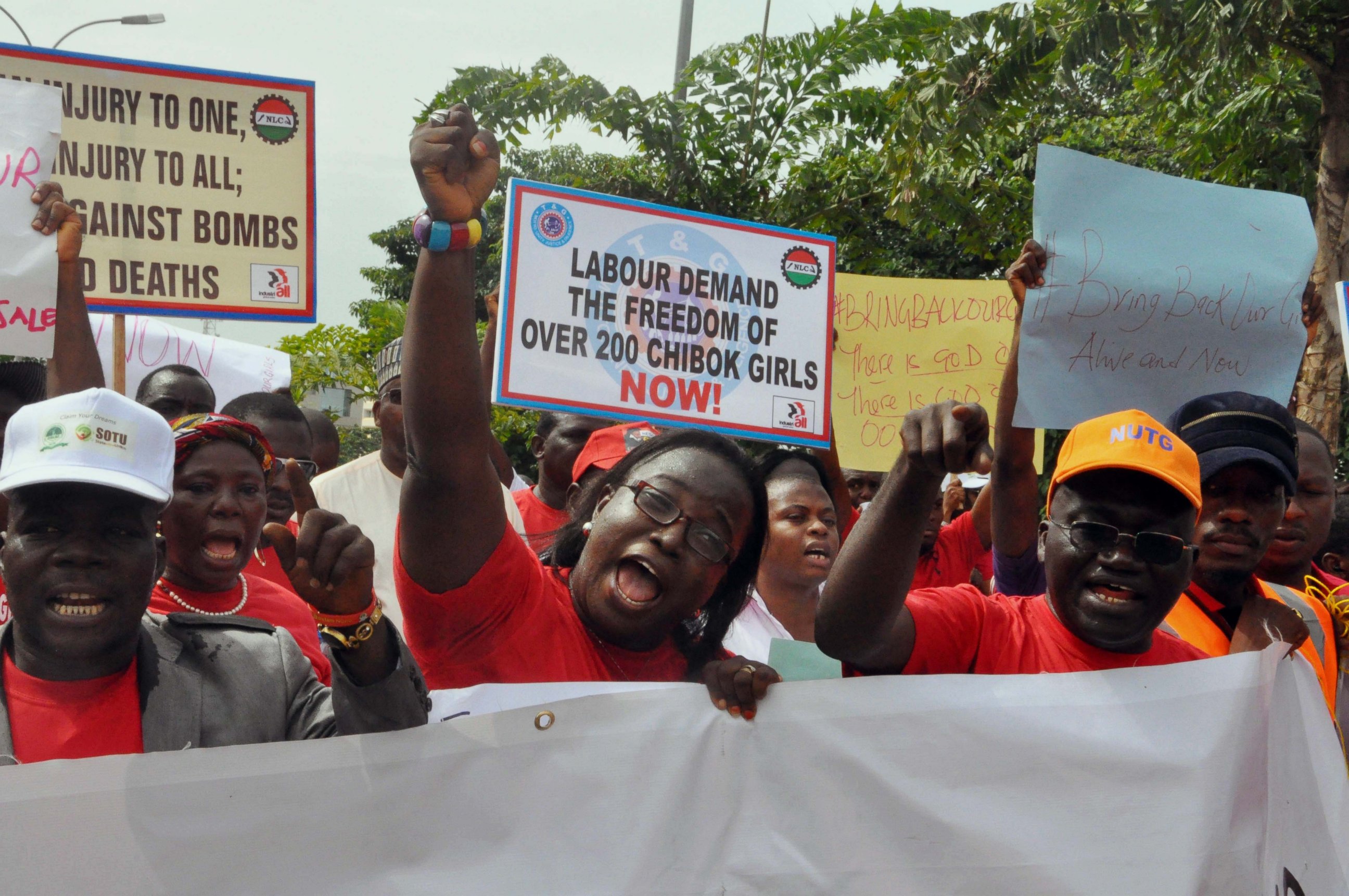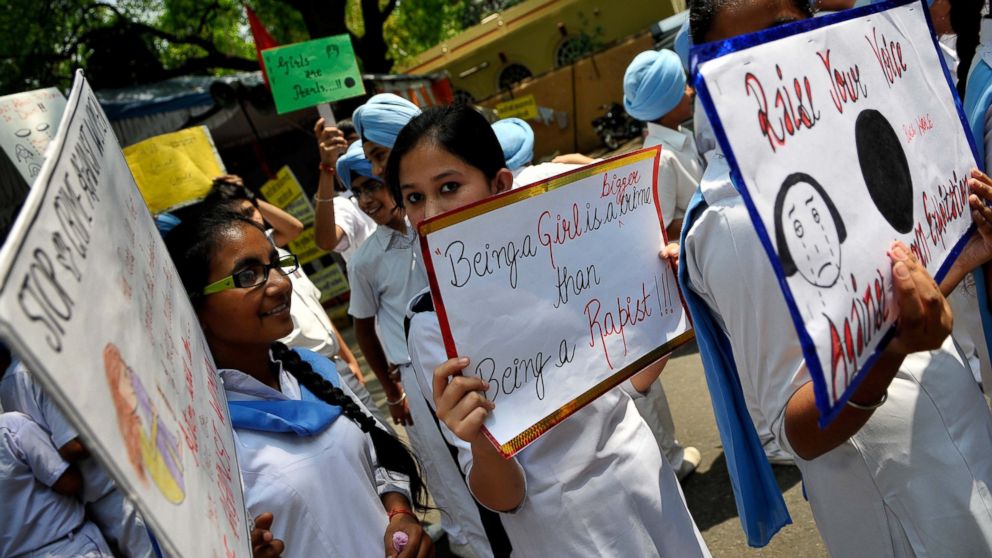Brutal Attacks on Schoolgirls on the Rise: UN
Report cites Pakistani Taliban slaughter of 140 people as the worst.
— -- Attacks on schoolgirls and girls’ education are on the rise, according to a new report from the United Nations office of human rights.
“Attacks against girls accessing education persist and, alarmingly, appear in some countries to be occurring with increasing regularity,” the report notes.
The BBC cites an international study published last year finding about 9,600 attacks in 70 countries between 2009 and 2013.
The report cited a handful of high-profile attacks in recent years. In Pakistan, in the deadliest attack of this kind in years, the Pakistani Taliban slaughtered 140 people, including at least 132 students at a military-run school in December 2014.

Two years prior, then 15-year-old Malala Yousufzai was shot at close range in the head by a Taliban gunman in Pakistan, making her the global face of the struggle to educate girls. Here, she’s shown reading a book at the Queen Elizabeth Hospital in Birmingham, England. She has since completely recovered and was awarded the Nobel Peace Prize at age 17.

The international community rallied around the hashtag #BringBackOurGirls when the Nigerian-based terrorist group Boko Haram abducted 300 school girls from the northern Nigerian town Chibok April in 2013.
This weekend Malala marked 300 days since the Chibok abduction, criticizing the Nigerian government on her blog: “Nigerian leaders and the international community can and must do much more to resolve this crisis and change their weak response to date,” she wrote. “If these girls were the children of politically or financially powerful parents, much more would be done to free them. But they come from an impoverished area of north-east Nigeria and sadly little has changed since they were kidnapped.”
Below, demonstrators outside the defense headquarters in Abuja, Nigeria called on the government to rescue the girls on May 6, 2014.

In April of 2013, Sikh school children hold placards during a protest after the brutal rape of a 5-year old girl at Jantar Mantar in New Delhi, India. Last April, two 5-year-old girls were kidnapped separately, brutally raped within weeks of each other.

“Attacks on girls’ education have a ripple effect - not only do they impact on the lives of the girls and communities who are directly concerned, they also send a signal to other parents and guardians that schools are not safe places for girl,” the report notes.
But despite the dangers that persist, removing girls from educational environments "may result in additional human rights violations such as child and forced marriage, domestic violence, early pregnancy, exposure to other harmful practices, trafficking and sexual and labor exploitation," the report concludes.




